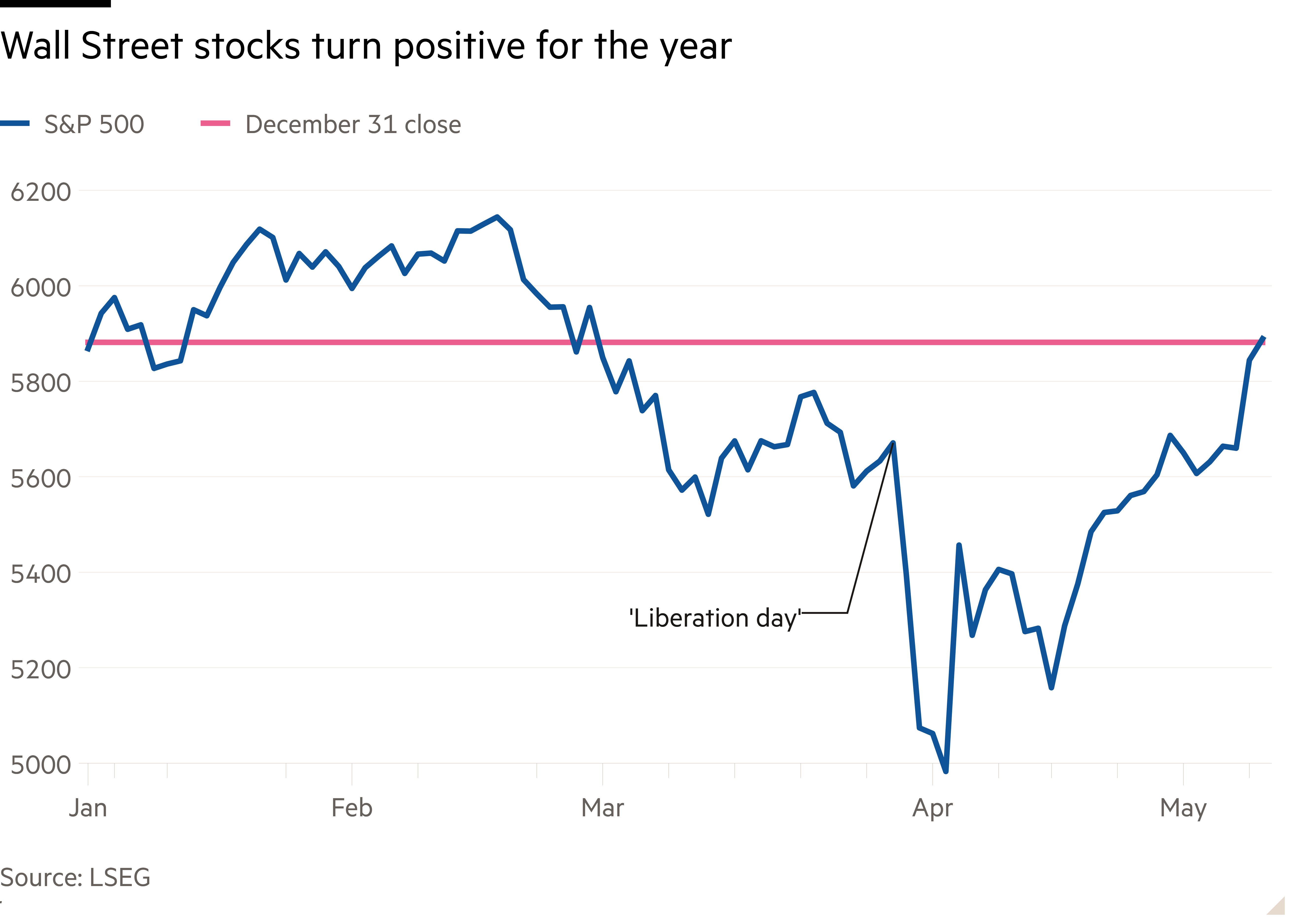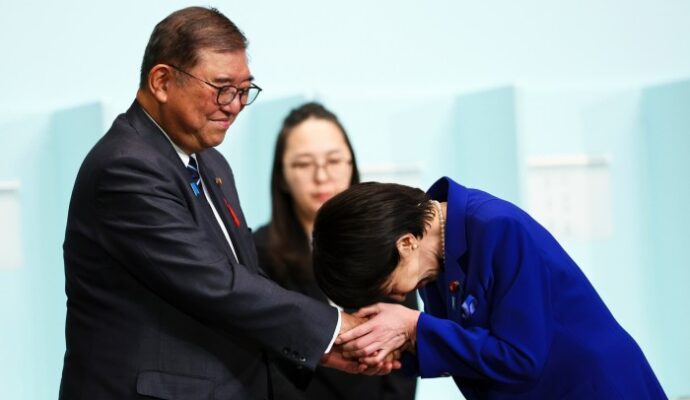This article is an on-site version of our FirstFT newsletter. Subscribers can sign up to our Asia, Europe/Africa or Americas edition to get the newsletter delivered every weekday morning. Explore all of our newsletters here
Good morning and welcome back to FirstFT Asia. In today’s newsletter:
US-UK trade deal upsets China
Trump unveils AI and defence deals in Saudi Arabia
How India and Pakistan pulled back from the brink of war
China has criticised a trade deal between the UK and US that could be used to squeeze Chinese products out of British supply chains, complicating London’s efforts to rebuild relations with Beijing.
Why is China upset? The trade pact agreed by US President Donald Trump and UK Prime Minister Sir Keir Starmer last week includes strict security requirements seen as targeting China. The deal included cuts to punitive US levies on UK car and steel exports, but these would only be granted on condition that Britain “works to promptly meet US requirements” on supply chain security and the “ownership of relevant production facilities”.
The view from Beijing: Asked about the deal, China’s foreign ministry said it was a “basic principle” that agreements between countries should not target other nations. According to trade-focused government advisers, London’s acceptance of Washington’s security clauses sparked surprise and concern in Beijing, especially as Starmer’s government had been working to improve ties with China. One Chinese government adviser, who asked not to be named, told the FT: “China will need to respond — the UK should not have rushed to agree to the deal.”
Why it matters: The comments place London in a difficult position between the two economic superpowers and could make it more challenging for the UK government to reset relations with China. Beijing has warned countries against signing trade deals with the US that threaten Chinese interests, fearing that Trump will use bilateral negotiations with America’s commerce partners to pressure them to cut China out of supply chains. Read the full story.
Here’s what else we’re keeping tabs on today:
Syria: Trump is expected to meet Syria’s new president, Ahmed al-Sharaa, in Riyadh, a day after the US president announced he would lift sanctions on the war-devastated nation.
Results: Sony and Tencent report.
Donald Trump’s return to the White House has triggered heightened tensions with China, raising big questions for global business, markets and the rest of the world. Join us on May 28 for insights into the most consequential geopolitical rivalry of our time. Register now and put questions to our panel.
Five more top stories
1. Trump hailed the US-Saudi Arabia relationship as a “bedrock” of security and prosperity yesterday as he began the first leg of his three-nation tour of the oil-rich Gulf. Before Trump’s speech — to an audience including US business leaders and Saudi Crown Prince Mohammed bin Salman — the White House unveiled what it said was $600bn worth of defence, artificial intelligence and other deals with the kingdom.
2. Nissan plans to axe 15 per cent of its global workforce and almost halve its number of plants, while Honda warned that it would take a ¥650bn hit from US tariffs, as leading Japanese carmakers struggle with restructuring and fallout from the trade war. “The impact of tariff policies is huge,” said Honda chief executive Toshihiro Mibe, adding that its modelling represented a worst-case scenario.
‘Buy Japan’: Foreign investors bought a record amount of Japanese equities and bonds in April, amid the chaotic aftermath of Trump’s “liberation day” tariffs.
SoftBank results: Masayoshi Son’s tech conglomerate recorded a surprise $3.5bn profit in its latest quarter, driven by gains in its telecommunications holdings.
3. Australia’s Liberal party has elected its first female leader after suffering a crushing defeat in nationwide elections this month. Sussan Ley, who was deputy leader of Australia’s 80-year-old centre-right party, won a slim majority in a closed-door MPs’ vote in Canberra yesterday. One Liberal MP said Ley would need to “spill some blood” to revive the opposition.
4. Microsoft will cut 3 per cent of its global workforce, the latest round of job cuts at a Big Tech company, as it seeks to streamline operations and pare layers of middle management. Microsoft has joined the likes of Amazon and Meta in rebalancing its workforce amid significant investments in AI and heightened competition with start-ups including OpenAI.
5. Singapore-based start-up Abaxx Exchange is seeking to challenge the dominance of London and New York in the global bullion market with the launch of a new physical gold contract, following a blistering price rally this year. Abaxx’s chief executive Josh Crumb described the structure of the gold market as “dysfunctional” because infrastructure had not kept pace with how it was traded.
News in-depth

India and Pakistan are both claiming victory in the short, sharp confrontation that brought the nuclear-armed neighbours to the brink of war last week. But analysts said that while both countries had delivered heavy blows, the US intervention that led to a ceasefire had given Islamabad the diplomatic upper hand.
We’re also reading . . .
Excess savings: We now seem unable to turn the surplus in some countries into productive investment elsewhere, writes Martin Wolf.
Trump’s Middle East doctrine: Israel has been cut out of dealmaking with Iran and Saudi Arabia as the US pursues its own objectives in the region, writes Kim Ghattas.
Europe’s capital markets: Hampered by a lack of competitiveness, the EU is making a new push to deepen the integration of its fragmented financial landscape.
Chart of the day
US stocks have wiped out their losses so far this year, as yesterday’s lower than expected inflation figures added fuel to a rally sparked by Trump’s deal with China to cut tariffs.

Take a break from the news
HTSI drinks columnist Alice Lascelles shares which airlines serve the best champagne — “for those lucky enough to turn left when boarding”.



